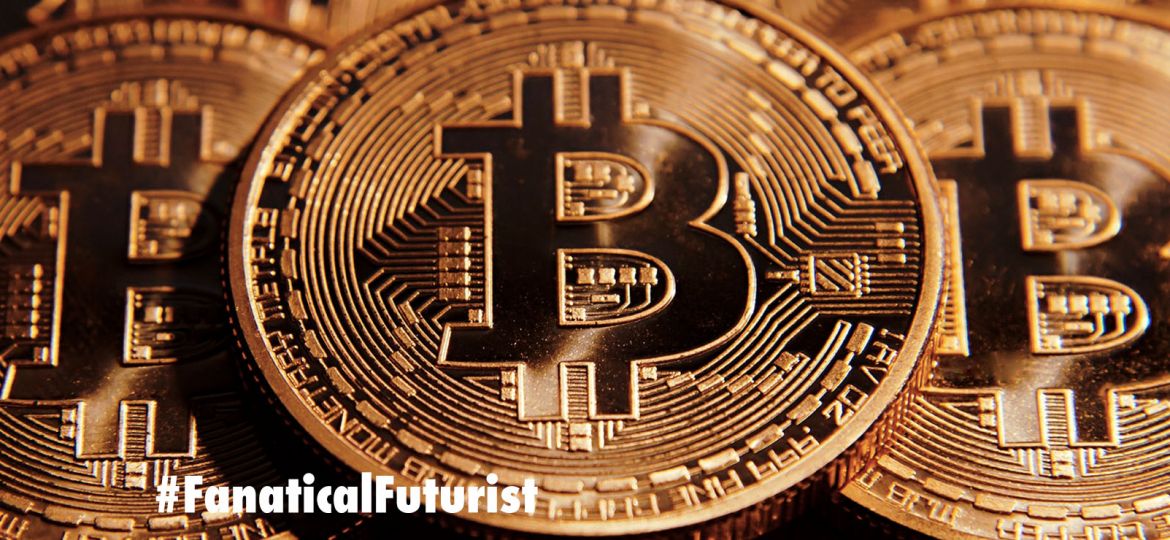
WHY THIS MATTERS IN BRIEF
Most volunteering goes unrewarded and undocumented but Hull’s pioneering social blockchain experiment rewards people for helping the community.
Volunteers and community workers in Hull in the UK will soon be able to obtain discounts at local retailers and even reductions in their council tax bills thanks to a new blockchain experiment that lets organisations reward people for performing “socially useful tasks,” such as volunteering and many other types of activities, that benefit the local community.
The pioneering blockchain scheme, which is thought to be a world first, won £240,000 in government and charitable funding earlier this year and if it’s successful the UK government has already hinted that it could be rolled out nationally, the result of which means it’s now attracting interest from lots of other countries including Africa, Europe and the US.
In the past couple of years a number of places in the UK, including Lewes and Bristol County Councils, have experimented with their own cryptocurrencies in order to boost local business, but unlike these local coins, “HullCoins” as they are known are digital and can only be earned by “good works,” rather than by being bought or sold with hard cash, and as an added bonus the coins carry an audit trail of all the work someone’s done.
“In short they’re like a loyalty card but for community loyalty,” says David Shepherdson, Co-founder and Chief Executive of Kaini Industries, the not for profit company that was set up to develop the technology.
The idea first came about in 2014 when Shepherdson, who was then the Financial Inclusion Officer at Hull County Council, was asked by Lisa Bovill, Head of Welfare Rights, to research local currencies. After a short period of time the pair left to found Kaini Industries, and now a year or so later, with prototype in hand they’ve hoards of local businesses offering discounts of up to 50 per cent to holders of HullCoins who are doing good work for the community. Shepherdson says companies like the concept because companies see it as a win win because it attracts customers and boosts their corporate social responsibility credentials at the same time.
“Businesses love discounts because they create footfall,” he says, “but this is discounting without devaluing the brand. Every discount they give for a HullCoin links them to something or someone supporting the local community.”
The coins are handed out as QR codes on mobile phones and people can earn them by helping children to read, running youth clubs and arranging activities for pensioners. Even achievements such as giving up smoking count, because they reduce the burden on local health services, and soon community groups, charities, schools, public health bodies, job centres and prisons will also be able to issue the coins once they’re approved by HullCoin.
“Using blockchain technology, we embed time stamped evidence of the positive social outcome of whatever activity has been undertaken into the coin itself,” says Shepherdson, “this creates a distributed ledger of all the socially good things happening in the community and gives people a social CV they can show to a prospective employer.”
“Some of my volunteering experience has been quite hard to reference,” says Bob Clark, who is currently unemployed and volunteering in a Hull community centre, “HullCoin provides an easy way of providing evidence of what I’ve done, and another advantage is that my unemployment benefit is unaffected by earning HullCoins.”
“Not being penalised financially is a massive attraction,” he adds, “it provides an incentive to volunteer between jobs and unlike customer loyalty points HullCoins retain their value indefinitely, and can be passed between people and reused by businesses.”
Meanwhile Matt Cunnah, Managing Director of The Hull Pie, a chain of local pie shops, is one of the retailers involved in the project who’s linking the amount of discount he’s willing to give according to the task performed by the owner.
“If the good thing was quitting smoking or taking someone’s dog for a walk, I might offer 10 per cent or 15 per cent off,” he says, “whereas if someone has given blood or pulled a person from a burning car, I might give a 100 per cent discount.”
There are also rules on what retailers can offer discounts on, for example, HullCoins can’t be used for cigarettes or alcohol, but Shepherdson says takeaway food has been a tricky area as bad for people’s health so as a result he’s created an independent volunteer run ethics committee to adjudicate “borderline” cases.
At the moment HullCoin is in Beta testing and has 800 volunteer users, 73 issuing organisations and 140 retailers offering discounts, with the county council planning to launch it in January 2018, and if it works, promoting the right behaviours and rewarding people who benefit the local community for their time and work, then it could be the start of an amazing new service that spreads much further than Hull, so watch this space.
















